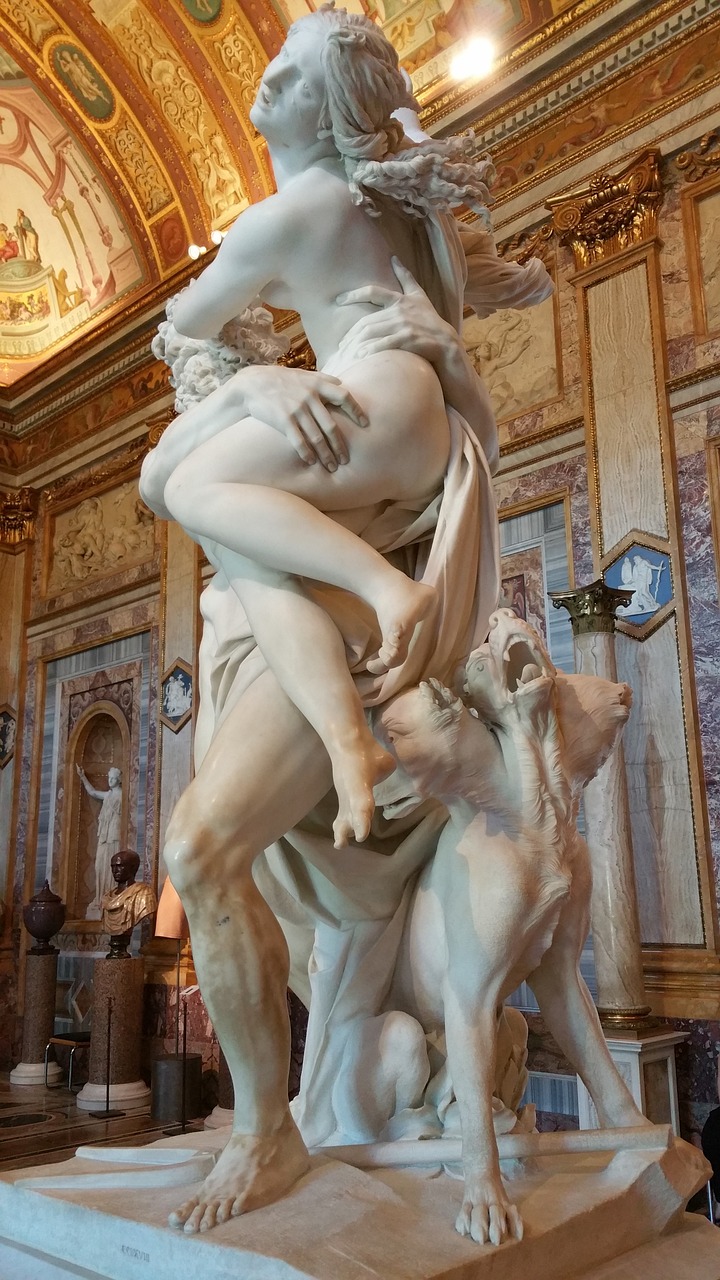The tale of Proserpina and Pluto, as narrated in Ovid’s “Metamorphoses,” depicts a forced union between the god of the Underworld and Ceres’ daughter, Proserpina. This event was initiated by Cupid, who struck Pluto with a golden arrow to incite instant desire, acting on the wishes of Venus, the goddess of love. Venus asserted that her enchanting influence had once captivated the hearts of Jove and Neptune, the deities governing the sky and sea, and decided to unite the living realm with the dead to invoke love in the Underworld.
At the time of these occurrences, Proserpina was savoring the essence of spring, gathering blossoms near a fountain, blissfully embracing her youth. In a fleeting moment, she was snatched away by Pluto, who whisked her off in his dark-hued chariot to the shadows of the Underworld. The nature of Pluto’s actions raises questions about consent, as Ovid describes him as a ravager who, caught in a fervent rush of emotion, tore away Proserpina’s garments. This violent episode disrupted Proserpina’s previously peaceful existence and plunged her into despair.
Simultaneously, Ceres was frantically searching for her missing daughter across the world, ultimately returning to the grove where Proserpina had originally been picking flowers. There she discovered the remnants of her daughter’s clothes, which Pluto had discarded in his hasty departure. This grim discovery ignited Ceres’ fury; in retaliation, she unleashed blight, scorching sunlight, and relentless storms upon the earth, leading to the devastation of crops and the desolation of fertile lands. As she wreaked havoc, a nymph named Arethusa approached her to reveal that she had seen Proserpina in the Underworld—not as a captive but as a queen. While Arethusa confirmed Proserpina’s elevated status, it was evident that she bore a heavy heart.
In her anguish, Ceres ascended to the heavens to confront her brother, Jove, who also happened to be Proserpina’s father. She implored him that they must demand the return of their daughter from Hades. After reflecting on the matter, Jove argued that Pluto’s actions stemmed from love and intentions were not inherently evil. Ceres, unsatisfied with this reasoning, was offered a deal: if Proserpina had not consumed any food in the Underworld, she could return to the surface.
Upon their descent into the Underworld, Ceres and Jove were dismayed to learn that Proserpina had eaten seven pomegranate seeds—an emblematic fruit associated with the dead. A dispute ensued between Ceres and Pluto regarding Proserpina’s fate, with Jove intervening as a reluctant mediator. Recognizing that neither party could endure the permanent absence of their daughter, Jove decreed a compromise: Proserpina would spend half of the year with her mother and the other half with Pluto. This cyclical arrangement laid the foundation for the seasons.
As Proserpina prepared to reunite with her husband each year, Ceres mourned her daughter’s departure, marking the onset of autumn when crops began to wither and winter approached. Conversely, upon Proserpina’s return, vitality blossomed anew in the fields, heralding the return of spring and summer, only to restart the cycle once more.



